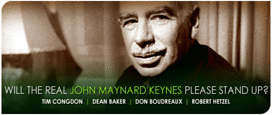Don raises several interesting issues about the role of regime uncertainty, however one important piece of evidence against it being a major issue in the current downturn is that investment is not depressed. Non-residential investment is back to its pre-recession level of GDP.
What is down is residential investment and consumption. The former is more likely due to the massive overbuilding of the housing bubble years and the resulting record vacancy rates. The fall in consumption is most obviously explained by the wealth effect associated with the loss of $8 trillion in housing bubble wealth. If we are trying to explain a falloff in investment by regime uncertainty then we are trying to explain an event that did not happen.

